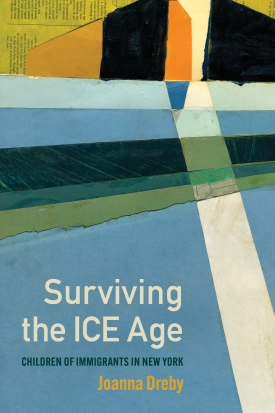About This Book
This booklet reports on the results of a survey on school social centers sent to 774 school superintendents. It includes charts on cities that reported having schoolhouse social or recreation centers at which there were some paid workers and that reported schools with libraries. The booklet also discusses civic aspects of recent social-center development.
CLARENCE A. PERRY was an urban planner, sociologist, and educator.
RSF Journal
View Book Series
Sign Up For Our Mailing List
Apply For Funding
About This Book
This booklet discusses how social centers promote reform movements. It notes that social centers provide patriotic education of immigrants through public ceremonies held for their naturalization, civic and health education, the promotion of baby welfare, the elevation of political discussions, and the dignification of voting through the maintenance of balloting booths. The booklet concludes with a list of foundation pamphlets on the topic of the social center.
CLARENCE A. PERRY was an urban planner, sociologist, and educator.
RSF Journal
View Book Series
Sign Up For Our Mailing List
Apply For Funding

Surviving the ICE Age
About This Book
“The 1.2 million US deportations from 2014 to 2024 are more than a statistic. They are a compendium of 1.2 million tragedies. In Surviving the ICE Age, Joanna Dreby harnesses her formidable ethnographic skills to vividly depict the pain, suffering, and trauma inflicted on the children of New York’s immigrants, most of whom are US citizens. It offers a sobering chronicle of the damage being done to the next generation of Americans that should be read by all.”
—DOUGLAS S. MASSEY, Henry G. Bryant Professor of Sociology and Public Affairs, School of Public and International Affairs, Princeton University
“Joanna Dreby and her team powerfully illuminate the profound generational burdens of immigration enforcement. Surviving the ICE Age reveals how silencing, disruption of childhood relationships, and challenges to belonging shape development long after enforcement episodes occur. As we face increasingly virulent anti-immigrant policies, this compassionate and urgent book reveals what is truly at stake for the next generation when we prioritize deportation over humane immigration reform.”
—CAROLA SUÁREZ-OROZCO, professor in residence and director, Immigration Initiative, Harvard Graduate School of Education
“Joanna Dreby’s Surviving the ICE Age is a compelling and deeply textured exploration of the profound and often overlooked effects of immigration enforcement on immigrant children’s lives and futures. Timely and essential, this book offers a powerful account of a critical issue, making a major contribution to our understanding of its human cost—and to the migration literature. An important work from a distinguished social scientist.”
—MICHAEL FIX, senior fellow and former president, Migration Policy Institute
For the past three decades, U.S. immigration policy has become increasingly restrictive, focused on enforcement both at the southern border and across the country. A shift in emphasis from status regularization to criminalization has had rippling effects for families and communities. While we know much about how immigration enforcement impacts the undocumented, we know less about longstanding effects on U.S. citizens. In Surviving the ICE Age, sociologist Joanna Dreby draws on interviews with young adults with foreign-born parents to better understand what it was like to grow up during a time of heightened U.S. migratory control.
Dreby shows that a restrictive approach to immigration creates problems over time and across generations. These issues occur regardless of one’s citizenship status and go beyond deportations. Despite having pride in their heritage, her interviewees did not talk much about immigration. She refers to this unwillingness—and at times, inability—to speak about immigration as silencing. Silencing in a community or family is often intended to protect children, but this can leave them with little information about their backgrounds and status, leading to fear and anxiety instead. Self-silencing often resulted from traumatic experiences tied to enforcement episodes, which sometimes took the form of memory loss or emotional withholding. Dreby finds that experiences with the immigration system that disrupted relationships in a child’s household arising from family separations, moves, or changing roles in the family had especially long-term effects, causing, at times, ongoing mental health issues. Even the risk of immigration involvement left some young adults feeling vulnerable and undermined their sense of safety and security as U.S. citizens.
Dreby also highlights stories that offer hope. Young adults developed strategies to persevere, and children who grew up in communities and families that openly talked about migration felt empowered and fared much better, especially when they had access to resources, such as adequate food and shelter, mental health services, and community support. Dreby calls for policies and practices to mitigate the harms of restrictive migratory control on children’s wellbeing, such avoiding the arrest of parents in front of children and ensuring that U.S. citizen children’s interests are considered in immigration court without their direct involvement.
Surviving the ICE Age details the generational harms caused by U.S. immigration policy and offers suggestions for a better way forward.
JOANNA DREBY is professor of sociology at the University of Albany, State University of New York
RSF Journal
View Book Series
Sign Up For Our Mailing List
Apply For Funding
Pagination
- Previous page
- Page 7
- Next page

